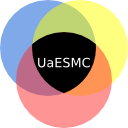University of Tartu
University of Tartu (UT) was established in 1632 and is the only traditional universitas-type research and teaching institution in Estonia. The university has 9 faculties. The institute of journalism and communication, participating in UaESMC, belongs to the Faculty of Social and Educational Sciences. Institute of journalism and communication has over 500 students in all three levels of study (BA, MA and PhD) and 26 members of faculty studying different aspects of social, cultural and political communication.
Besides traditional journalism studies, institute has a very strong research background in social studies, analyzing societal processes through the communicative aspects. Many analyses have been done on transformation of societal aspects. The early focus was on transformation from post-communist countries to western capitalist world. Now the focus has shifted to analyzing and understanding the emerging information and network society. This research is also funded by target financing projects.
The implementation of innovative software and information system solutions is an important project to study. SMC challenges many traditional understandings of human interaction. Trust and validation of information is a crucial part of the fabric of society. The understanding of how new technologies can challenge these issues is an important research problem for social sciences. The wide-scale deployment of SMC for a networked society will enable the transformation of some traditional relations and it is important to understand the potential of enablers in the real social contexts. UT will have dual role in the project — on the one hand, UT will contribute methodological and communication related knowledge to gathering input and disseminate the results. On the other hand, UT will have an important scientific problem to investigate from the aspects of social sciences.
Principal investigators of UT
Pille Pruulmann-Vengerfeldt (MA, 2002, and PhD, 2006, University of Tartu) is an associate professor in media studies and head of the institute in the University of Tartu, Institute of Social Studies. She also works as a part-time researcher in Estonian National Museum. Her research interests are focused on different Internet user types using different online applications, user-friendly online spaces as possible venues for participation in political and cultural life. Her practical interests are mostly focused on implementation of the user related knowledge on different aspects of social informations, e.g. public engagement and user participation in public institutions and politics. She is the leader of research projects: “Developing museum communication in the 21st century information environment” and the leading Estonian partner for e-Participation project “HUB websites for Youth participation”. She is also participates in projects: EuKidsOnline, “The Problems of Transformation and Reception of Cultural Heritage in the Digital Age” and “Estonia as an Emerging Information and Consumer Society: Social Sustainability and Quality of Life”. She has recently published in Journal of Baltic Studies, Journal of computer Mediated Communication and Journal of Children and Media.
Laur Kanger is an assistant of media theories in the University of Tartu, Institute of Social Studies. He holds a PhD in Science and Technology Studies from the University of Edinburgh. His research interests include the multi-level dynamics of technological evolution, history of computing and sociological theory.
Laur Kanger is an assistant of media theories in the University of Tartu, Institute of Social Studies. He holds a PhD in Science and Technology Studies from the University of Edinburgh. His research interests include the multi-level dynamics of technological evolution, history of computing and sociological theory.
